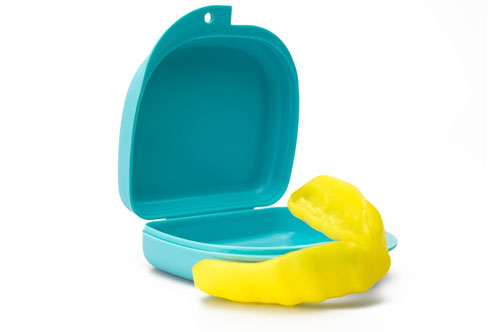Eventually, you came to realize how often you are grinding your teeth. Maybe it was something you caught yourself doing during the workday, or maybe you felt some jaw discomfort and realized it. Either way, is this something you can just ignore until it goes away?
That is a very bad idea. Teeth grinding is a major sign you might have TMJ disorder a condition that can hurt your dental and physical health. Left untreated, this can even lead to lockjaw.
By calling Dr. Wallin today at 720-504-2539, you can schedule a visit to see if you have TMJ problems or not. He has been providing TMJ treatment for many years that improves the health of your teeth, jaw, and overall wellness.
Know The TMJ Disorder Signs
TMJ is the nickname of your temporomandibular joints. These are on either side of your face by your ear, and you depend on them to open and close your mouth. Whenever you chew, talk, or just breathe in through your mouth, you are using your TMJ.
Normally, the muscles in your joints heal at night and when you’re not using them. But if you are grinding your teeth while you sleep, your TMJ cannot heal naturally. They get overworked and start causing problems.
How do you know if you have this? Again, teeth grinding is a huge symptom, but here are some other common signs:
- Sore jaw muscles: If you have some discomfort in your jaw joints, while you chew or not, then that typically means your TMJ are not healing naturally.
- Earaches: Your muscles are interconnected, so when the muscles in your TMJ get hurt, they affect nearby muscles. That can lead to earaches since the ears are so close to your jaw joints.
- Headaches and migraines: Along the same lines, people who have TMJ disorder tend to get headaches. Over time, this can turn into migraines, and these can be most prominent in the morning.
- Jaw stiffness: As those jaw joint muscles get overworked, they can resist being used. People with this condition often have some difficulty opening or closing their mouth. If this gets worse over time, it turns into lockjaw.
- Clicking or popping noises: If you open your mouth and hear a weird noise, that’s probably the jaw joint moving in ways it shouldn’t. That happens when the muscles there cannot rest.
Get TMJ Treatment
What causes these problems? To some extent, it’s still something scientists are researching. That said, stress is definitely one cause. When you are very stressed, your muscles tend to tense up — including those in your jaw joints.
But TMJ (and the teeth grinding it causes) leads to another problem: worn enamel. By grinding your teeth together, you slowly but surely wear off some protective enamel. This creates worn spots where more damage is likely.
More importantly, how can you treat it? Because this is a problem involving your mouth, a trained dentist like Dr. Wallin can offer a comfortable oral appliance. This fits over your teeth like a mouthguard but thinner. If you are grinding your teeth a lot, this protects them. But it also shifts your jaw so those TMJ muscles can finally rest and heal up.
Call Silver Leaf Dentistry today at 720-504-2539 or contact us through our online form to make your next appointment.
Visit Silver Leaf Dentistry
We can see you as soon as tomorrow!


![Why Teeth Grinding Is A Sign of A Bigger Problem | Longmont, CO [Blog]](https://silverleafdentistry.com/wp-content/uploads/sites/11/2018/09/tmj_treatment_2.jpg)


